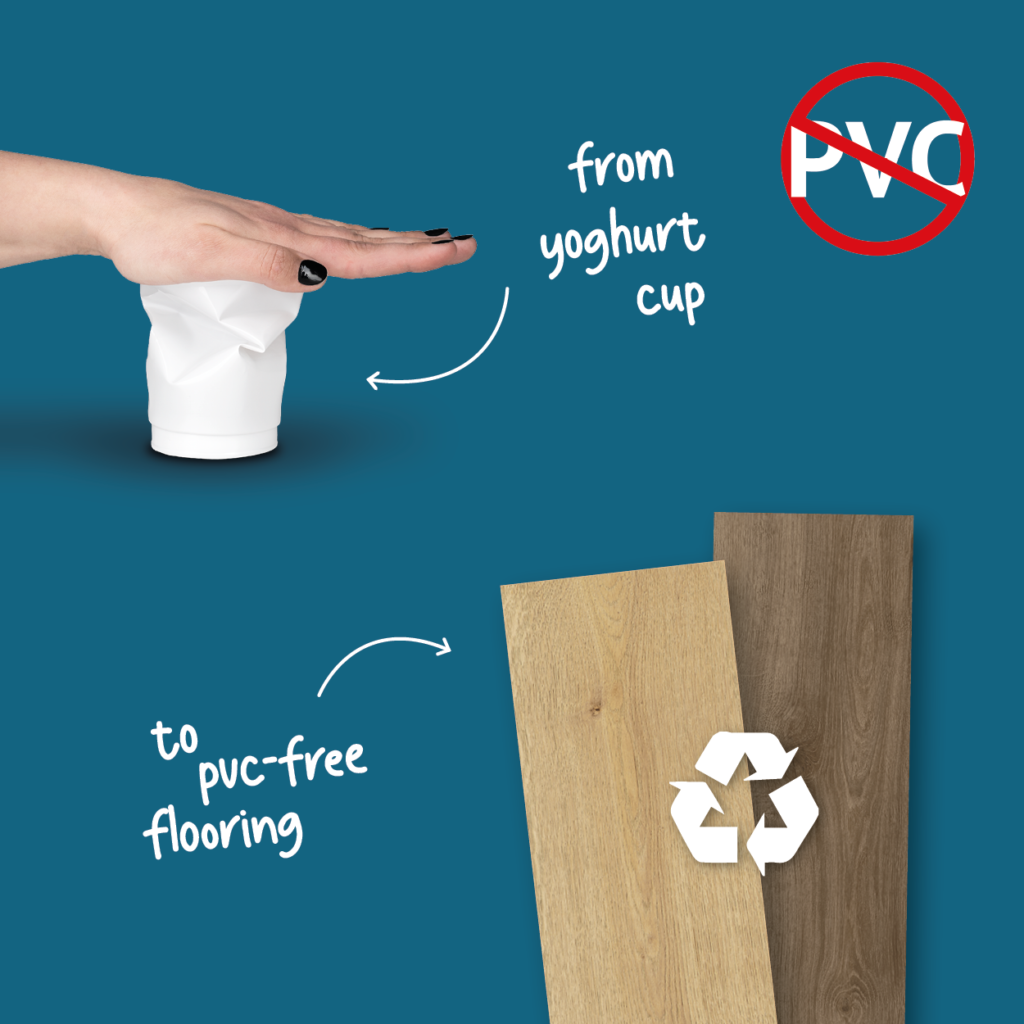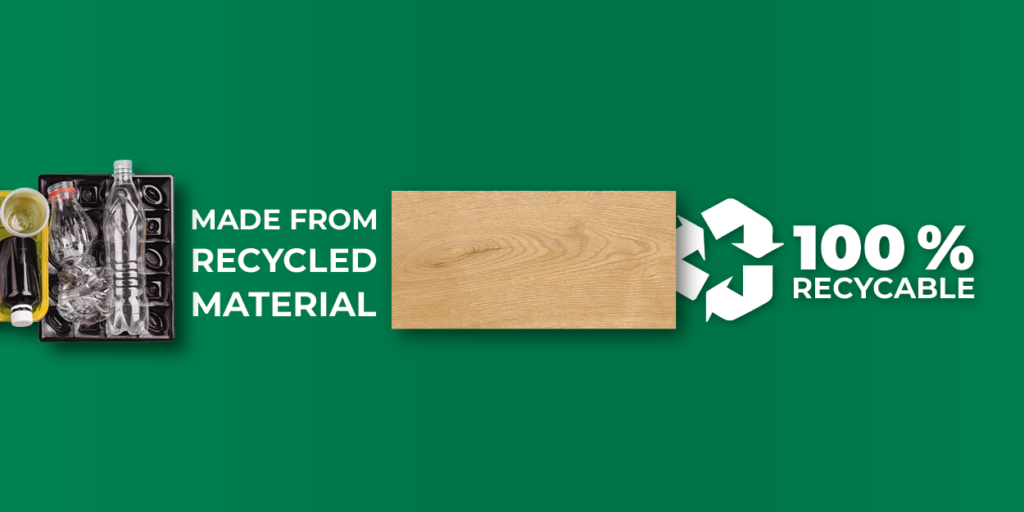Vinyl floors are the absolute trend. But PVC (polyvinyl chloride) has direct and indirect effects on our health. Floor coverings with PVC have been criticized for years, especially because of harmful plasticiser they contain, which have a negative impact on our environment and health.
With CERAMIN we offer you a PVC- as well as pollutant-free-floor based on polypropylene (PP).

Instead of polyvinyl chloride (PVC), the material polypropylene (PP-05) is used for our CERAMIN floor coverings. Polypropylene is absolutely harmless both in production and in subsequent use and disposal. The polymer is mostly used in the packaging industry for groceries, as it has a particularly high degree of purity. In addition, polypropylene is significantly more robust than polyvinyl chloride due to its material properties.
In addition, our wall and floor coverings do not require the addition of plasticiser or other harmful stabilizers.
A large number of everyday items such as bank cards, hoses or shoe soles, but also medical packaging and, above all, window and door frames as well as design and vinyl flooring contain PVC. Disposal is extremely problematic because - whether incinerated, dumped or landfilled - toxic pollutants escape into the air, soil or water. A recent incident from Ohio impressively demonstrates just how problematic this is. After the derailment of a freight train, vinyl chloride, which was loaded among other things, was released and burned to prevent an explosion. As a result, residents in the region are now complaining of various ailments that are obviously directly related: from headaches to numbness to bloody stools. In addition, several thousand fish died, as well as domestic animals.
In addition, many soft PVC products such as design or vinyl flooring still require the addition of harmful plasticiser. However, as these cannot be firmly bound, they evaporate over time and depending on the application and thus enter the respiratory tract via the room air or, in the case of application close to the body, the human (or animal) hormone and immune system via the skin. The damage has been proven by studies several times.
CERAMIN is not only produced to a large extent from recycled materials, but is also 100% recyclable afterwards.
The recyclates are post-consumer materials, e.g. plastic food packaging. The use of recyclates on the one hand releases significantly less CO2, since no new oil has to be extracted, and on the other hand the processing of recyclates requires less energy than virgin PP.
